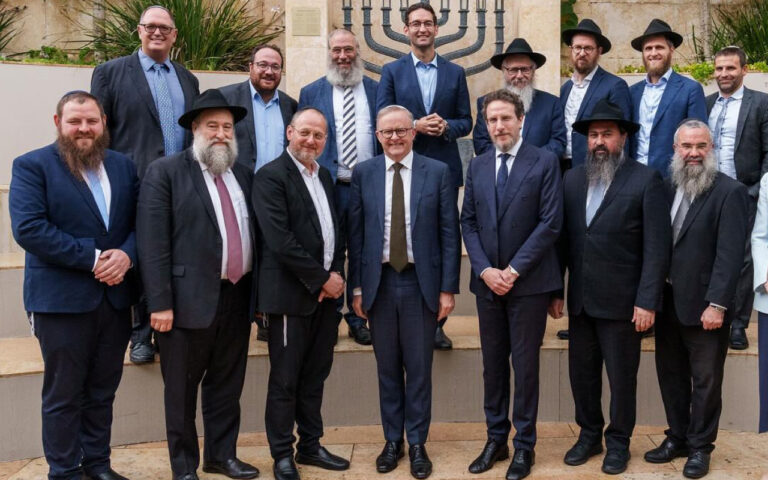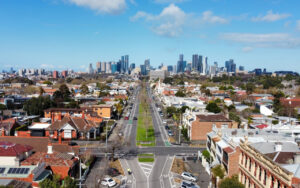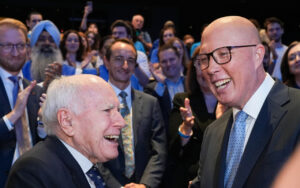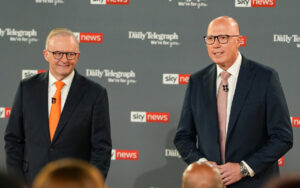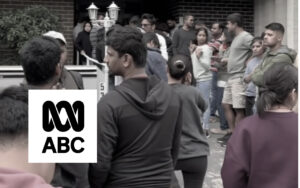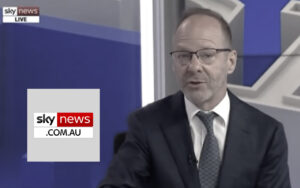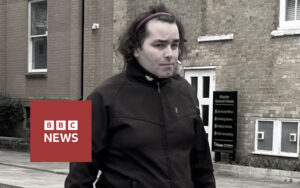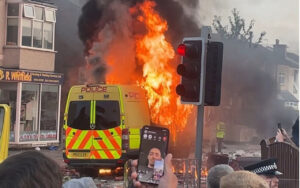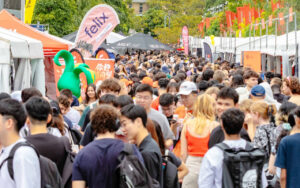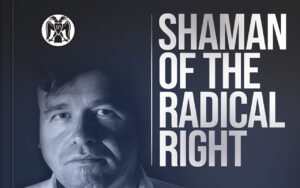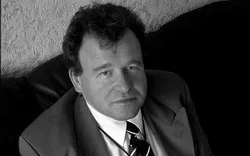The topic of anti-Semitism in Australia has become increasingly contentious in recent years, with discussions about its growing prevalence dominating news cycles, social media, and public conversations.
It feels as though every instance of graffiti being spray-painted somewhere in the country triggers an entire day of solemn reflection, accompanied by a steady stream of interviews from politicians and representatives of Jewish lobby groups painting a picture of a nation where, apparently, Jews are in constant danger.
Last week, for example, the president of the Executive Council of Australian Jewry (ECAJ), a Zionist umbrella organisation of Jewish community groups which monitors anti-Semitism, wrote in The Australian: “It is a sad but simple truth that public spaces are no longer safe for Jews in Australia.”
But amid the never-ending – and apathy-inducing – news reports about the rise of anti-Semitism in Australia, concerns have been raised by Jewish organisations themselves about it being weaponised to stifle criticism of Israel, influence Australian foreign policy, or further specific legislative changes.
The Jewish Council of Australia (JCA), a liberal organisation that has been critical of Israel’s actions in Gaza, for example, last year warned about “the weaponisation of false anti-Semitism accusations” by some participants in a pro-Israel rally, and the “conflation of anti-Semitism with criticism of Israel and support for Palestinian human rights”.
The JCA has also spoken out about Victoria’s proposed anti-protest laws, which were brought in as a result of lobbying by other Jewish groups, warning they will add to division and threaten community safety and democracy, while also condemning attacks on synagogues.
The disagreements between Jewish groups on the issue were highlighted in a recent article by the Guardian Australia, which contrasted working definitions of anti-Semitism used by the ECAJ and the JCA.
The ECAJ recorded 2,062 incidents of anti-Semitism in their 2024 annual report, of which 670 were posters or stickers and 393 were graffiti, and used the Human Rights and Equal Opportunity Commission’s definition of “racist violence” as “a specific act of violence, intimidation or harassment carried out against an individual, group or organisation on the basis of race, colour, descent or national or ethnic origin” while compiling their data.
The JCA, on the other hand, conducted an analysis using a different dataset of reported anti-Semitic incidents in yet-to-be-published research that identified 389 individual incidents from 501 submissions to a parliamentary inquiry on anti-Semitism at universities.
However, only 79 of these were classified as anti-Semitic under the JCA’s definition of anti-Semitism as “discrimination, prejudice, hostility, or violence against Jews as Jews or Jewish institutions as Jewish”.
The JCA’s analysis found that nearly half of the reported incidents were related to support for Palestine or criticism of Israel and Zionism, which did not meet their anti-Semitism criteria.
This included instances where individuals used phrases like “from the river to the sea” or the term “intifada,” the Arabic word for “uprising”. The preliminary findings indicate a significant overlap between what some view as anti-Semitism and acts of support for Palestine or opposition to Israeli policy and Zionism.
Yet despite the lack of consensus between Jewish groups, concerns about a rise in anti-Semitic incidents since October 7 have prompted legislative responses at both federal and state levels aimed at “curbing hate crimes and enhancing public safety”.
Notable examples include:
- The prohibition of Nazi symbols and gestures: In 2024, Australia enacted laws banning the display of Nazi symbols nationwide, following the passing of similar legislation in New South Wales (2022), Victoria (2023), and Queensland (2024). These measures were introduced to address the rise in anti-Semitic activities and the public display of hate symbols.
- Restrictions on protests near places of worship: After the firebombing of a Melbourne synagogue in December 2024, the Victorian government proposed laws to ban protests outside religious buildings and prohibit the use of masks and certain items by protesters. These measures aim to prevent harassment and intimidation of worshippers.
Also in December, the Australian government launched Taskforce Avalite, a special initiative responding to Jewish community concerns and mounting pressure from the mainstream media.
While these measures have been framed as necessary for combating hate, the government has faced criticism for disproportionately prioritising the Jewish community’s concerns – Jewish schools and synagogues have received extra public funding for security during a cost-of-living crisis – over broader Australian issues.
Politicians are often tempted to exploit crises – real or manufactured – to advance their agendas. Through exaggerating or fabricating problems, they generate fear or outrage, conditioning the public to accept preordained solutions.
This “problem-reaction-solution” dynamic is a potent political tool: a crisis is exploited (or created), the public reacts emotionally, and a solution is presented as the only viable option.
In this process, freedom can be sacrificed under the guise of safety, ending hate, or promoting progress. The tragedy of such manipulation rests not only in its deceit but also in its corrosive effect on freedom.
Lies, once mandated, necessitate the suppression of dissent. To maintain the illusion of truth, critical voices must be silenced, alternative narratives discredited, and public discourse controlled.
As George Orwell warned in his book 1984, truth becomes whatever the ruling power decrees. A society where perception is engineered rather than discovered is one where individuals are no longer free to think independently.
They are conditioned to accept the state’s preferred narrative, often at the cost of their autonomy and critical thinking.
Australia is now heading down a very slippery path of manipulation reminiscent of the Voice to Parliament referendum, where certain people get special privileges at the expense of all other Australians.
It will culminate in the censorship of our speech, the exploitation of our tax dollars, forced educational efforts and the persecution of anyone who dares to dissent.
In fact, one could argue that it is already happening.
Header image credit: Anthony Albanese after addressing anti-Semitism at the Central Synagogue in Sydney in May (Facebook)
